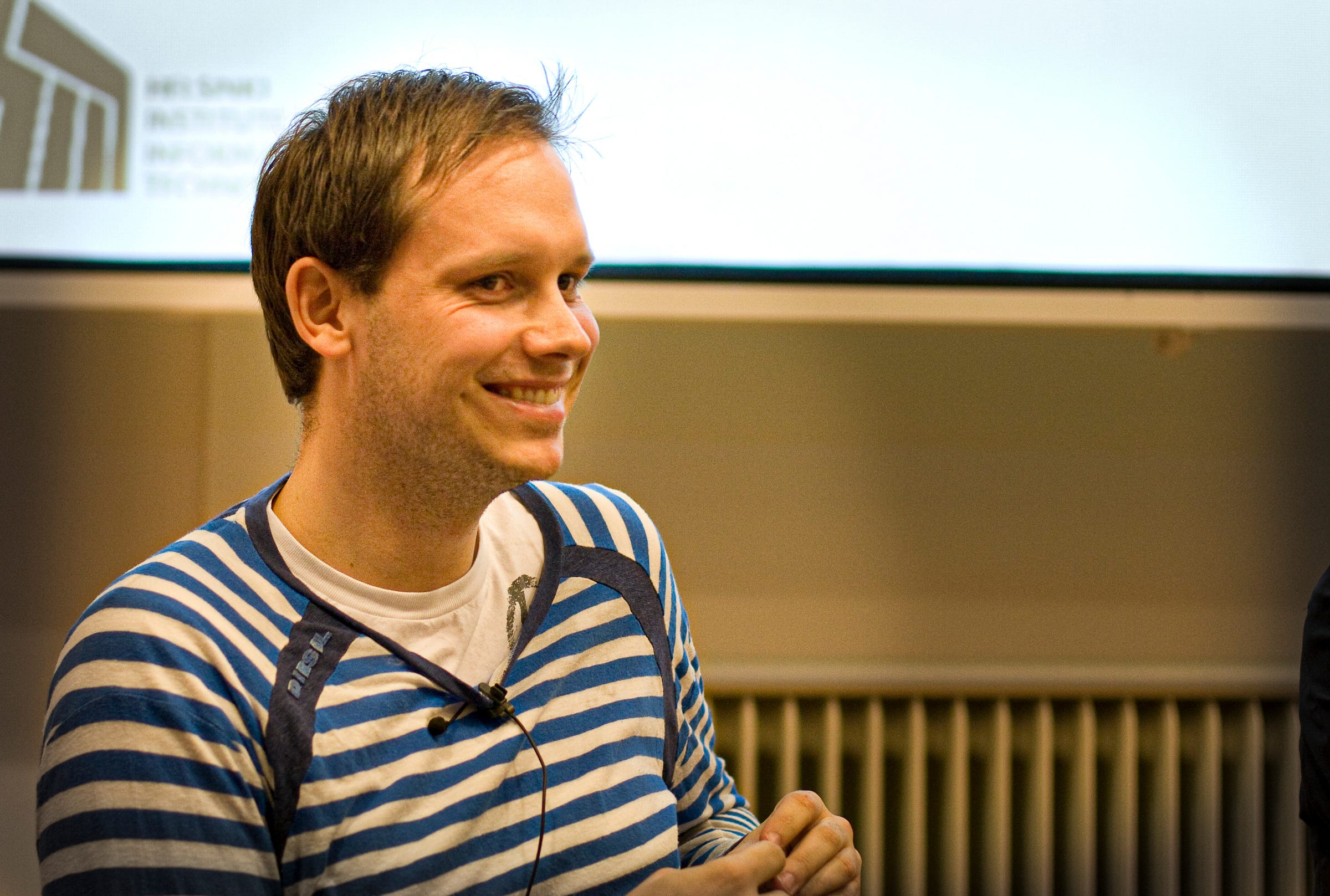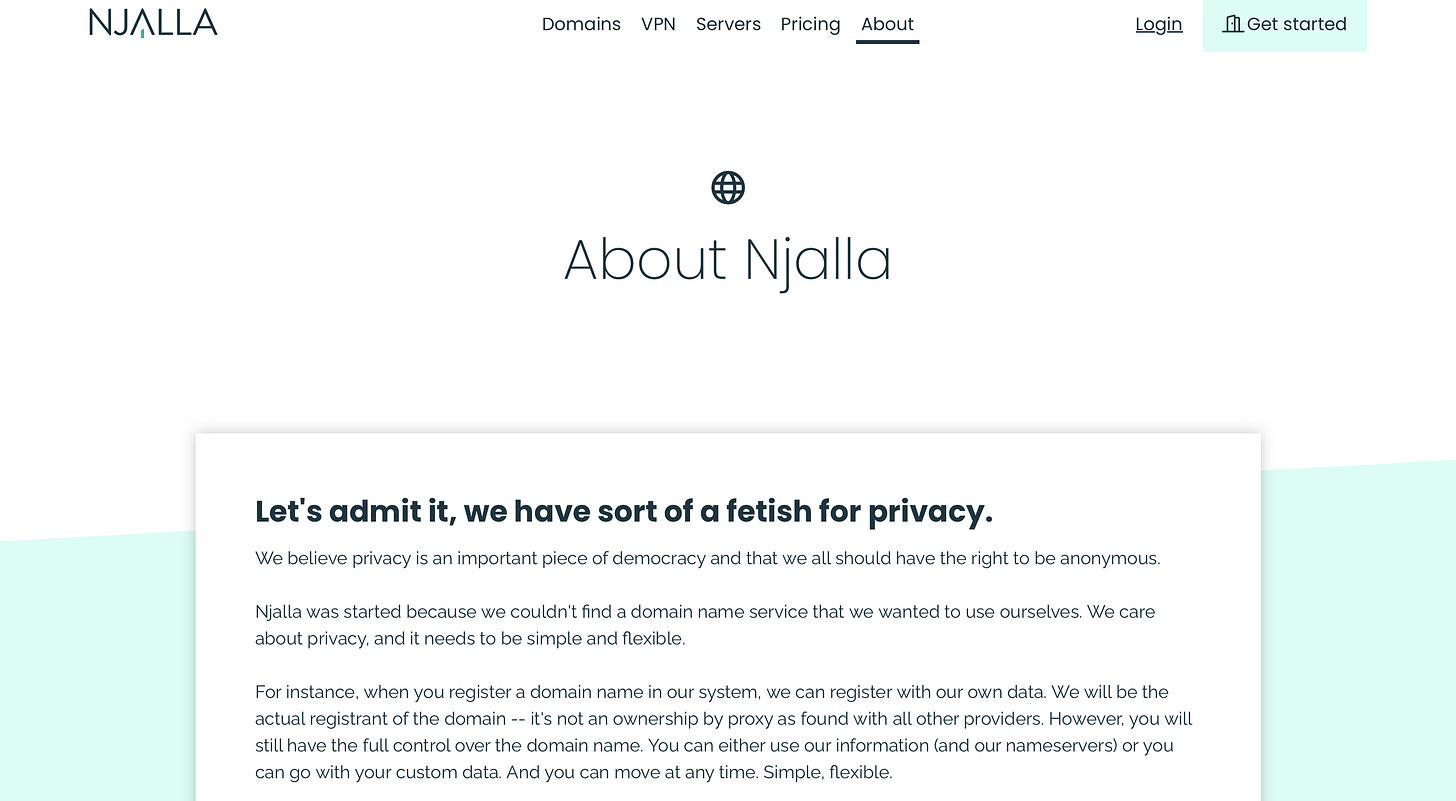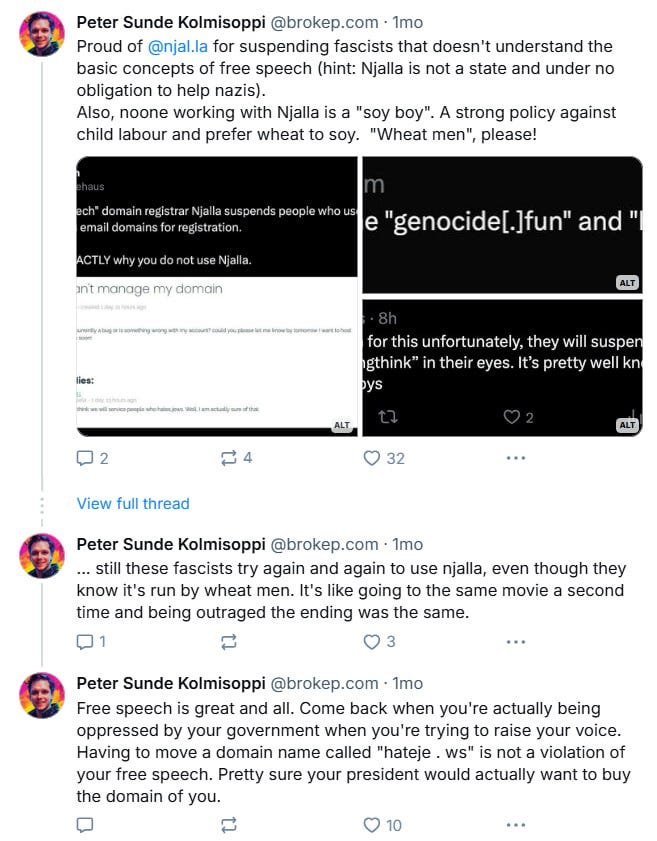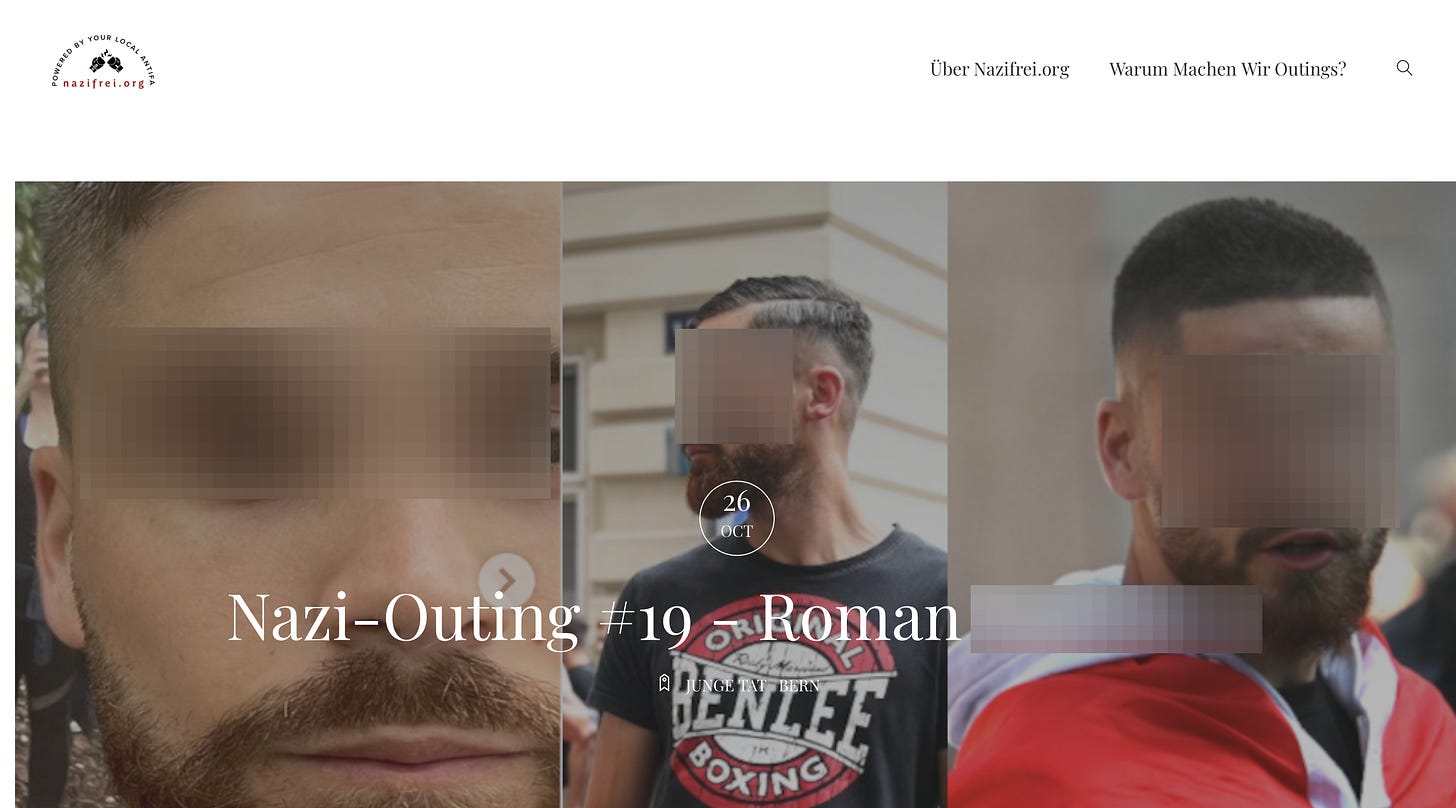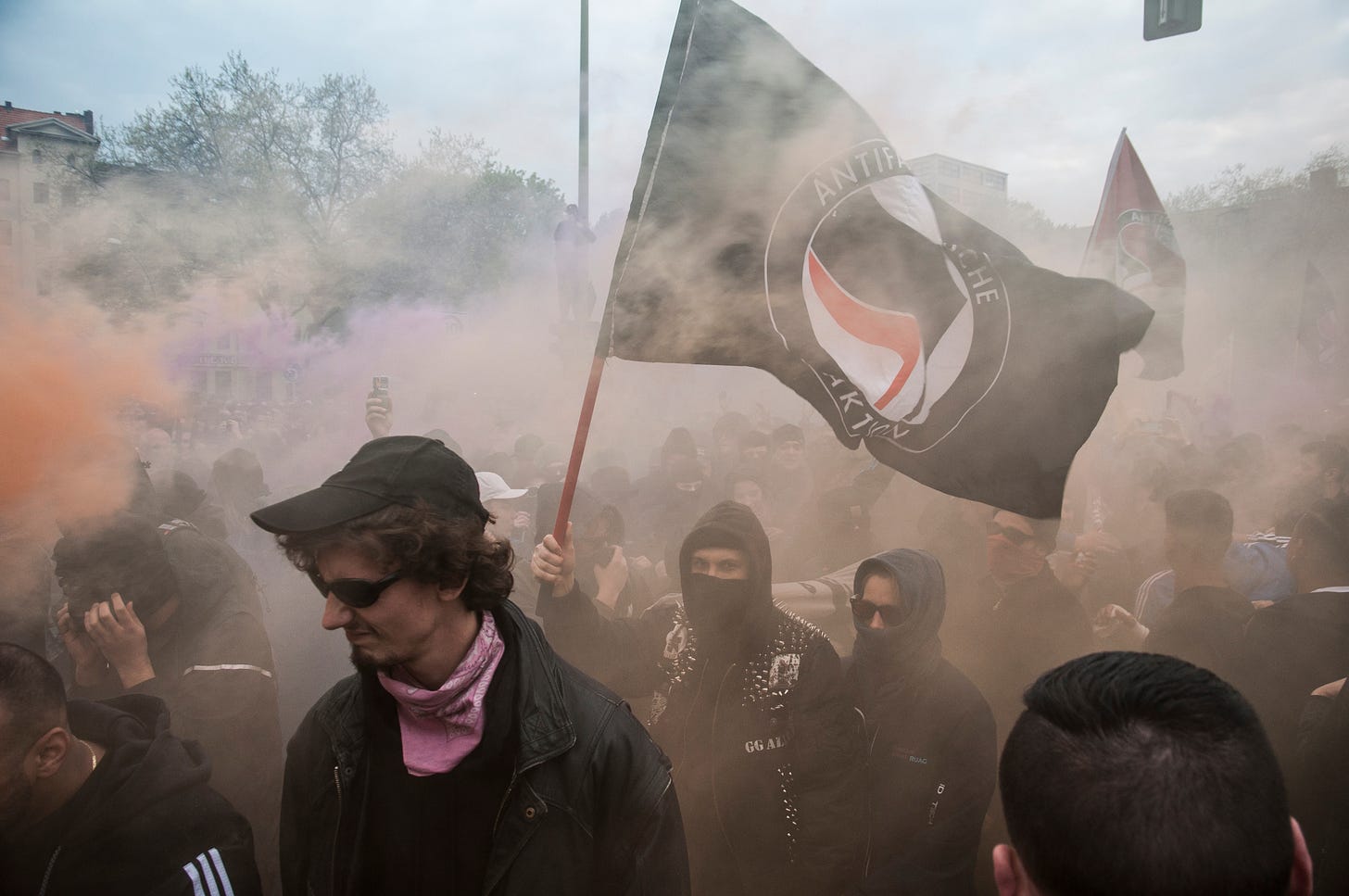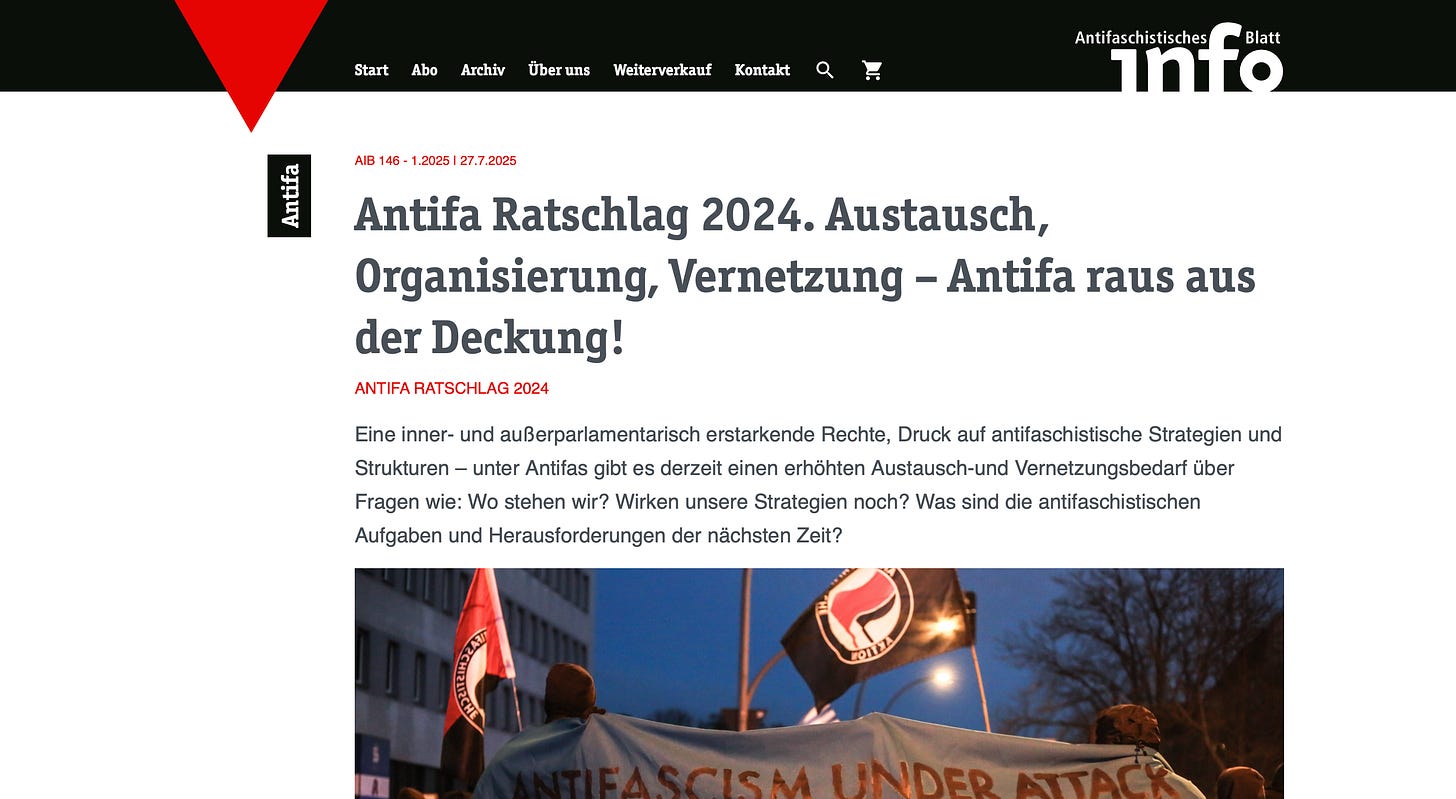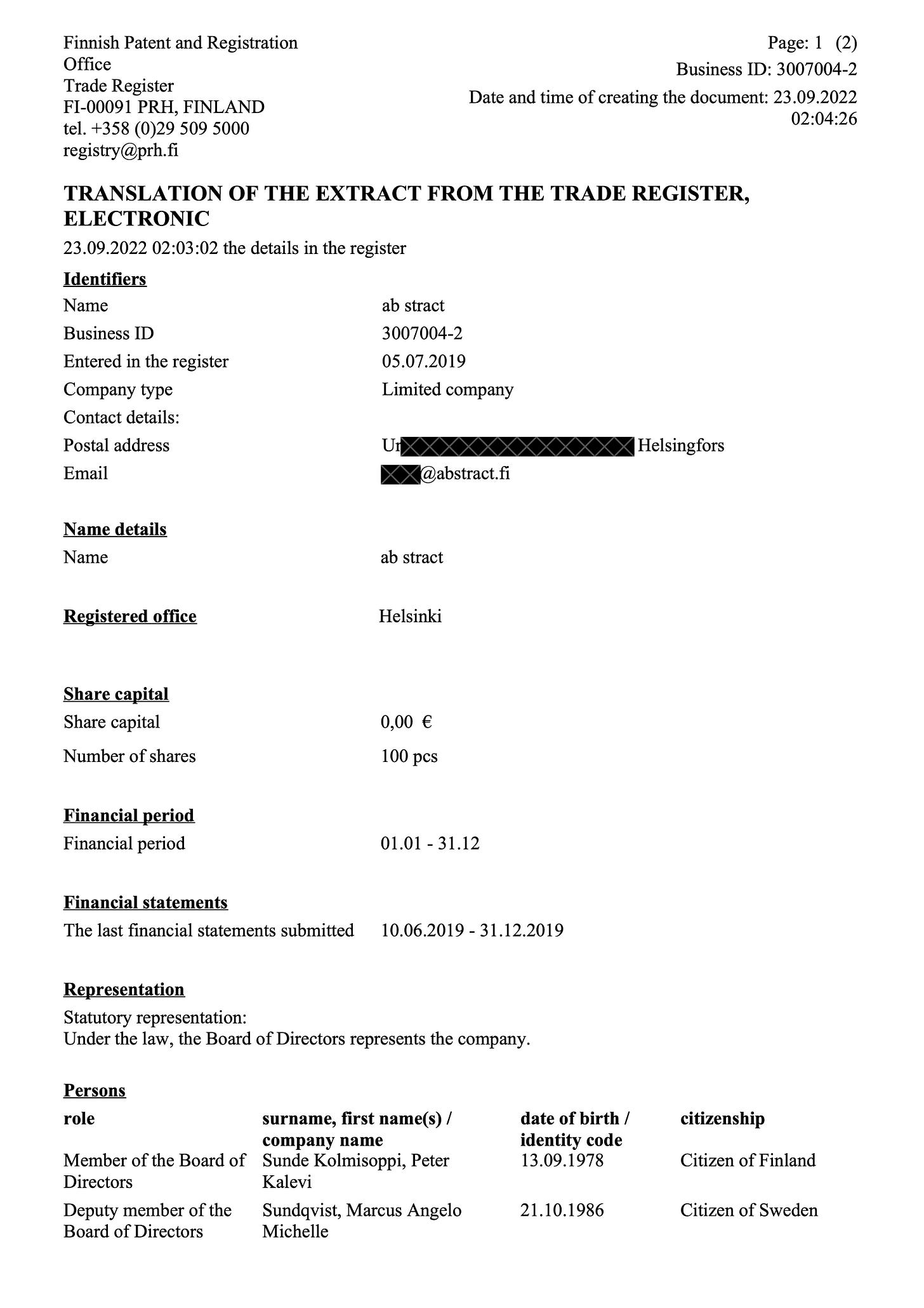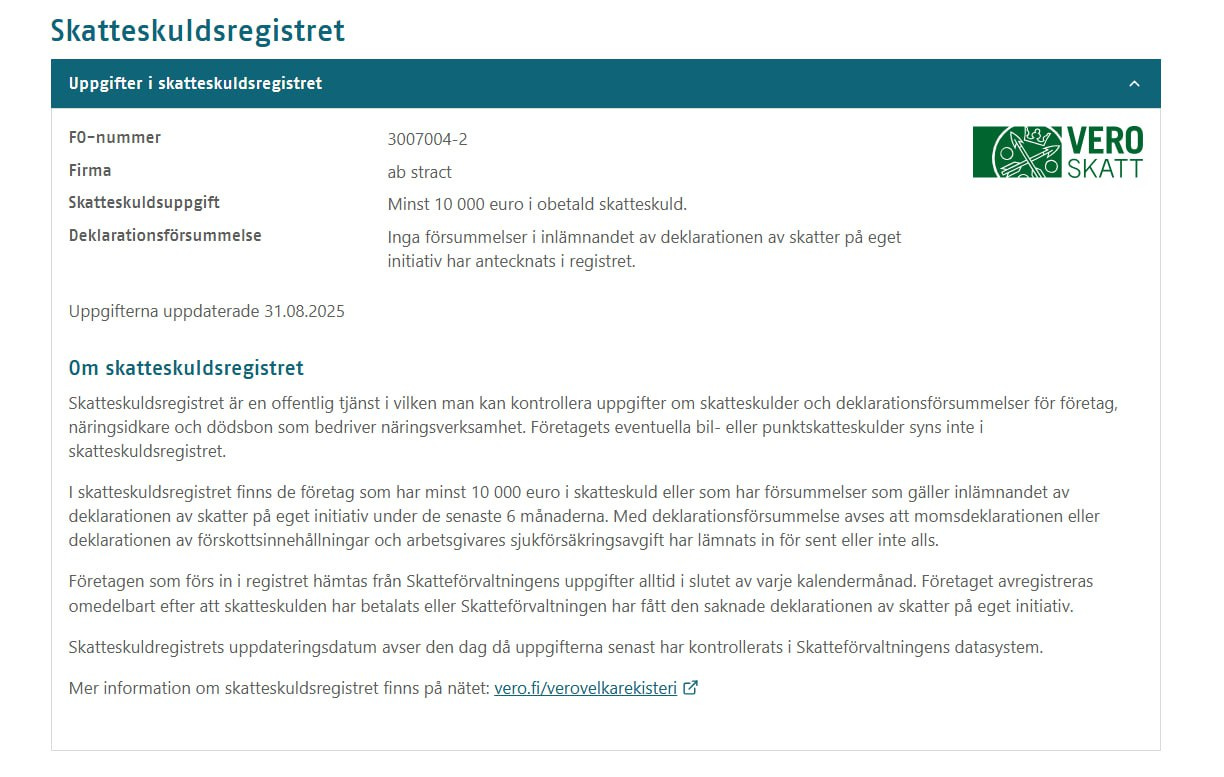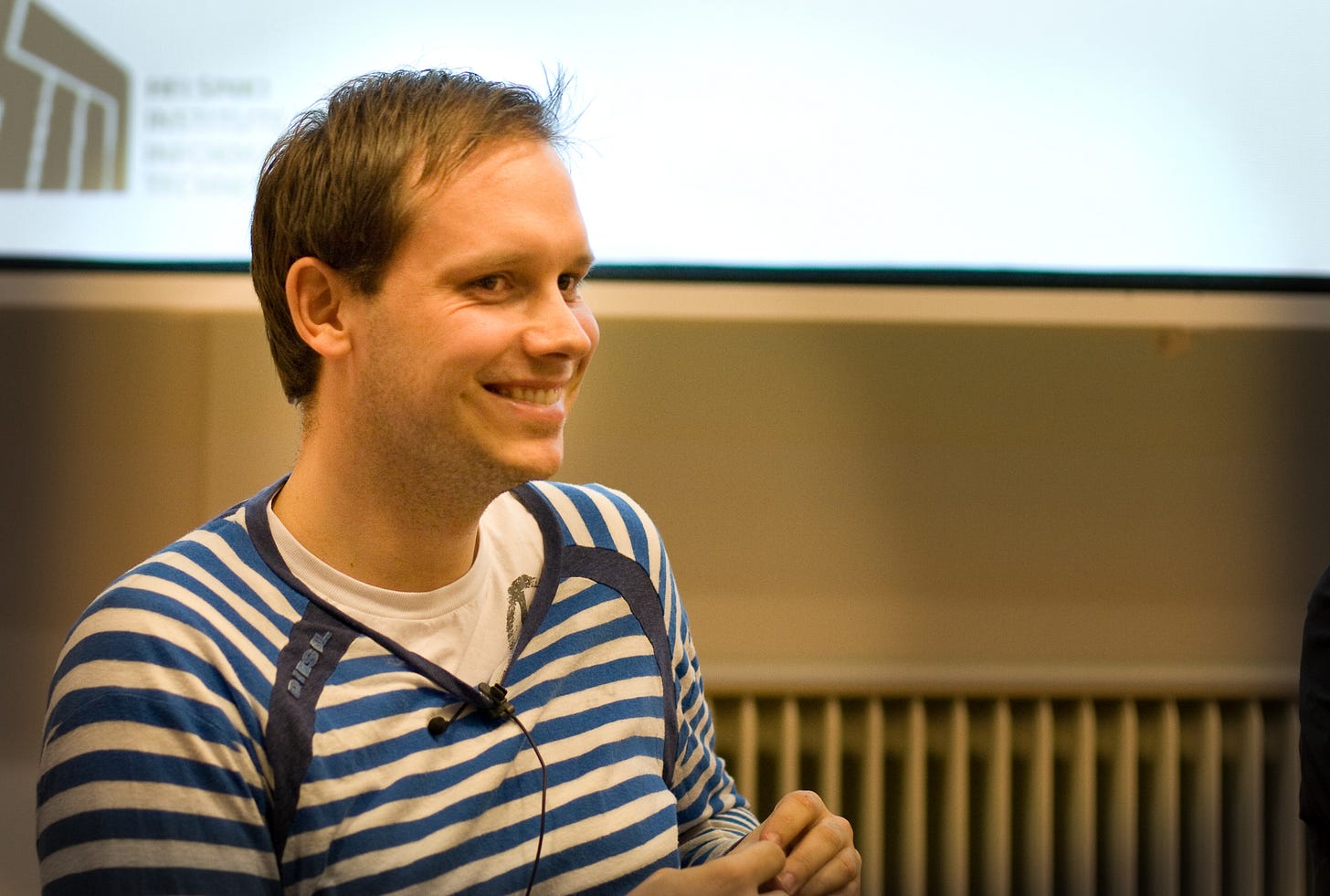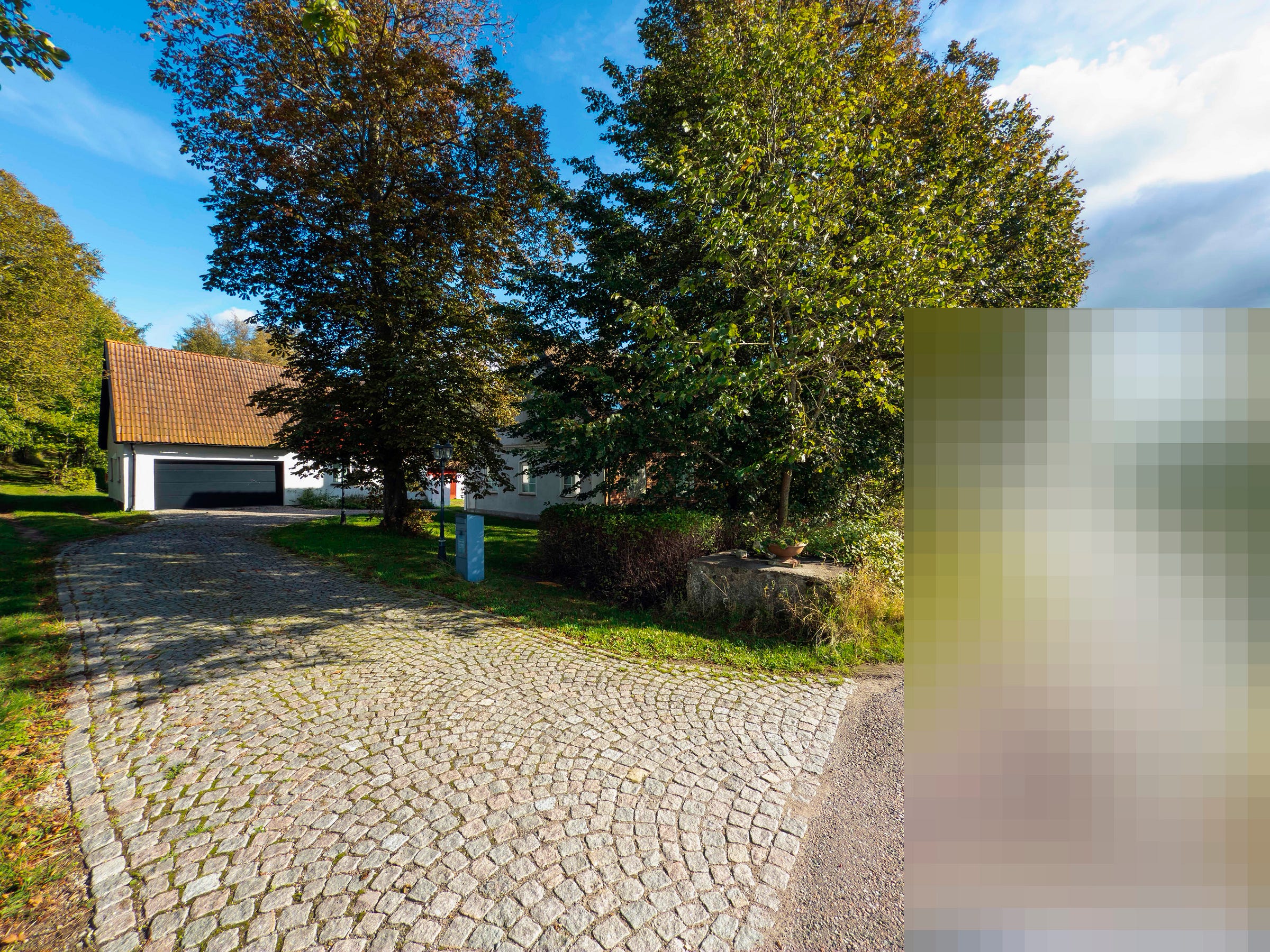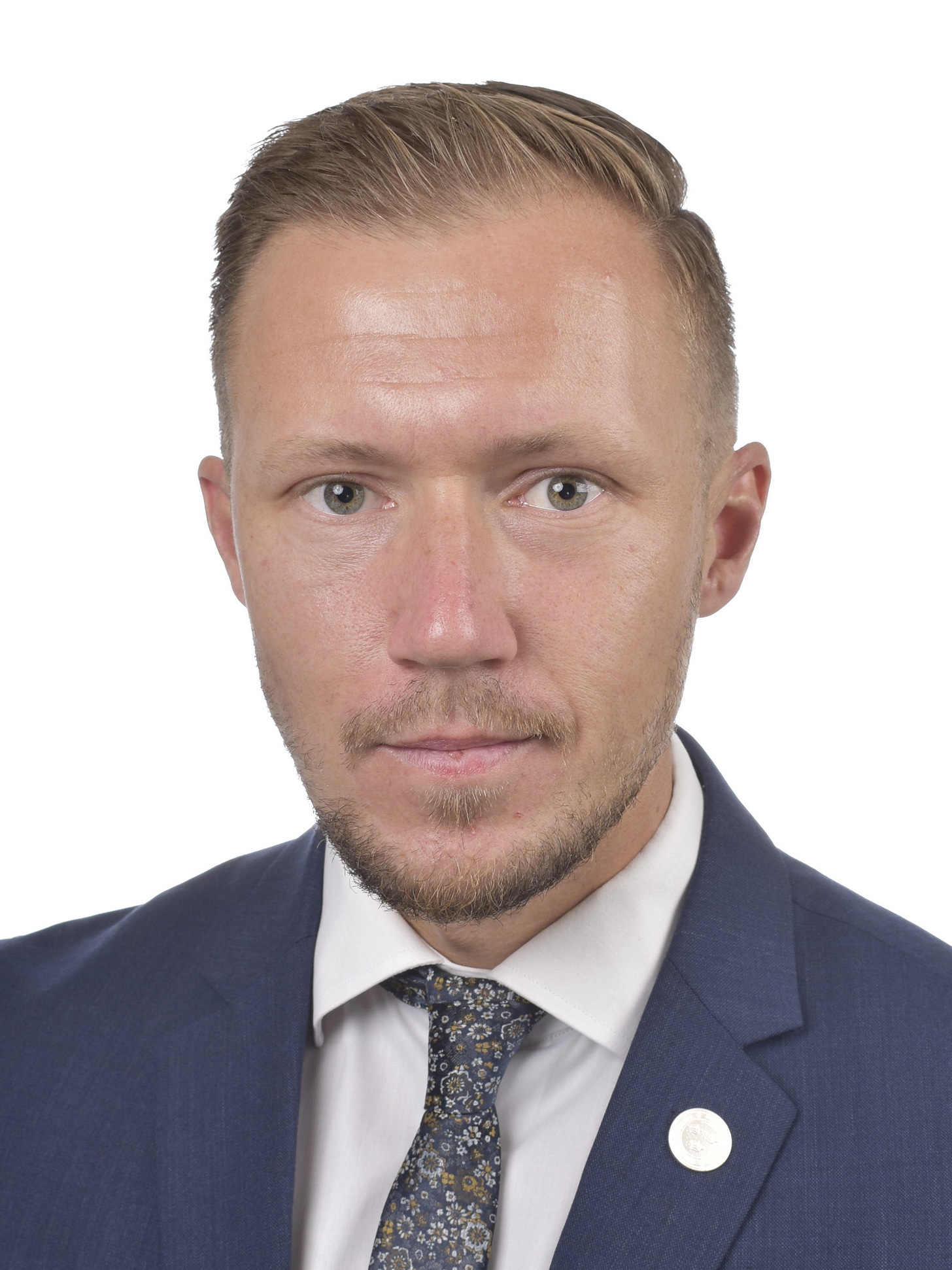Peter Sunde: The Man Behind Antifa’s Doxxing and Funding Network
After the U.S. terror designation of Antifa, questions are now being raised over whether sanctions could be imposed on Peter Sunde — the front man behind several far-left doxxing and funding sites.
Behind Antifa’s anonymous doxxing and global funding sites hides a well-known Swedish figure — Peter Sunde Kolmisoppi, founder of the illegal file-sharing site The Pirate Bay.
By acting as a facilitator for far-left websites through his companies Ab Stract and the offshore firm Privactually Ltd, Peter Sunde enables the spread of doxxing and violent rhetoric — which in several cases has led to harassment, assaults, and arson attacks against conservative voices.
From Sweden, Denmark, Germany, and Switzerland — all the way across the Atlantic to the United States — his network forms a hub for the global far-left movement’s harassment campaigns and the funding of convicted terrorists.
But his $11,430,000 debt to Hollywood for numerous copyright infringements may not be the heaviest burden he carries — not since the Trump administration designated Antifa as an international terrorist organization.
Table of Contents
Behind the far-left’s doxxing operations
Enabler of organized crime
The Internet Providers
Risks legal consequences
Multi-million debt to Hollywood
Fake home- adress
False registrations obstruct law-enforcement
U.S. Anti-Terror Laws May Be Triggered
Sweden Democrats Want to ban Antifa
Behind the far-left’s doxxing operations
The Anonymization Service Njalla
In 2017, Peter Sunde Kolmisoppi launched the anonymization service Njalla. The name comes from the Sámi language and refers to a storage space kept inaccessible to outsiders. The service acts as an intermediary between the domain registrar and the actual server environment where the content is hosted. In short: an expensive proxy service designed to conceal who truly operates a website.

On its own website, Njalla describes online anonymity as a cornerstone of democracy — but in practice, Sunde has repeatedly refused clients on political grounds. When the conservative social media platform Parler sought hosting after being deplatformed by Amazon Web Services, he publicly declared that he had no intention of providing infrastructure to “far-right extremists.”
The hundreds of websites making use of Njalla’s services are by no means secret — they can easily be traced by examining their IP addresses. Below are some of the most notable examples:
Hosts Swedish Antifa’s doxxing site
The violent far-left movement Antifascistisk Aktion (AFA) emerged in the 1990s and has since been repeatedly identified by both the Swedish Security Service (Säpo) and the National Council for Crime Prevention (Brå) as a concrete threat to Sweden’s constitutionally protected freedoms and rights. AFA functions as a campaign arm within the far-left organization Syndikalisterna (the Syndicalists) and has as its primary goal to intimidate conservatives and nationalists into silence through systematic harassment and acts of violence.
One of its most common tactics is doxxing — through its website Antifa.se, AFA publishes names, photos, personal identity numbers, and home addresses alongside defamatory claims. The articles routinely end with a call for the targeted individual to abandon their political involvement. The site also boasts openly about violent actions, as well as contacting employers, family members, classmates, and neighbors to maximize the social damage inflicted on those exposed.
Out of fear of retaliation, AFA activists are extremely protective of their anonymity. For this reason, they use Njalla to prevent their identities from being linked to the harassment — identities that could otherwise be revealed if they hosted their sites with a regular web provider that cooperates with police and courts.

Far-left propaganda platform
The media platform radionoden.se was built by openly antisemitic AFA activist Ayman Osman, who was previously sentenced to a lengthy prison term after selling drugs on the streets of Stockholm.
Radio Noden functions as a hub for the far-left’s podcasts — many of them directly connected to the violent left, and in particular to AFA. One such podcast is Komintern, run by convicted far-left extremists Tor Alsén, Axel Rosengren and Elias Pettersson (formerly Tångvik), all of whom have ties to AFA’s propaganda activities. In several episodes they have not only spread agitation but have also openly called for violent acts — both against political opponents and officials within public authorities.
Ties to the Danish far-left
The Danish branch of AFA can also be linked to Peter Sunde. Their website, antifa.dk, includes contact details for those who are expected to issue apologies for their political involvement.
In addition, the autonomous far-left in Denmark operates the doxxing site Redox.dk — a platform that closely resembles Sweden’s AFA site, but unlike AFA, has several public representatives. The site publishes names and defamatory information about opponents with the intent to intimidate them into silence. Recently, Redox has faced legal setbacks and was, among other things, convicted of defamation against the anti-Islam activist Rasmus Paludan.

Swiss Antifa’s doxxing platform
The doxxing site “nazifrei.org” publishes the names, addresses, workplaces, and contact details of individuals whom Swiss activists consider to be far-right. Under the subheading “Nazi-outing,” the site lists activists — primarily from the Identitarian movement — as well as various local groups in the German-speaking parts of the country.
When I call Tobias Lingg, leader of Junge Tat — the group most affected by the site — he tells me that the publications have led to extensive harassment of his members, as well as targeted campaigns aimed at getting them fired from their jobs.
Aids the German branch of Antifa
In Germany, the violent far-left constitutes a particularly acute threat to democracy and has in recent times been behind a series of brutal attacks — not least targeting politicians from the country’s now largest party, the national-conservative Alternative for Germany (AfD).
One of the most high-profile cases is the so-called Hammer Gang, a group of far-left extremists who broke into opponents’ homes and smashed their legs with hammers.
It is worth noting that AFA’s Swedish website has openly supported the Hammer Gang’s terrorism and raised funds to cover the attackers’ legal fees and fines.
The largest doxxing site of the German AFA movement is antifainfoblatt.de, where Peter Sunde is also listed as a front man. The site frequently mixes doxxing of ordinary AfD members with actual national socialists — a deliberate strategy to blur distinctions and collectively demonize conservatives. Private individuals — for example, public employees who participated in an immigration-critical demonstration — can also have their personal details published.
Beyond doxxing, the site functions as a mobilization platform. It calls on the so-called “black bloc” — black-clad, often equipped far-left aggressors — to appear at designated locations to harass those the violent left views as enemies. The implied instruction is, of course, that these people should be assaulted.
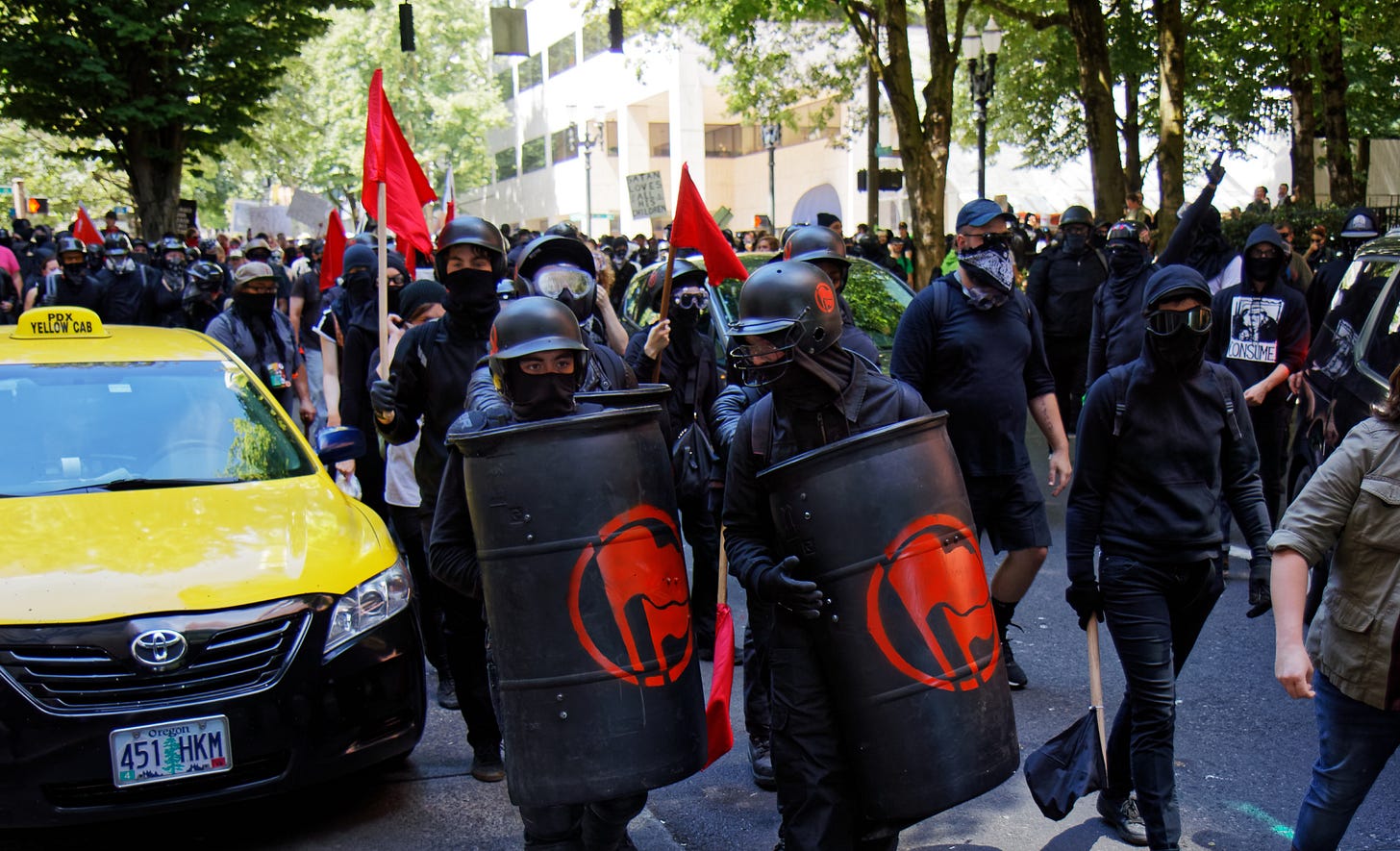
Funding of convicted terrorists
Anarchist Black Cross (ABC) is an international network of far-left extremists working to support imprisoned activists and raise money to pay fines.
Peter Sunde hosts, among other things, the Danish branch’s website via the domain abc-kbh.dk. The site publishes lists of various terrorists along with links to the global ABC website, where visitors are encouraged to send letters of support and donate money to prisoners around the world.
Several Swedish municipalities — including the City of Gothenburg — have long banned ABC and its Swedish front figure Andreas Lindh from renting public facilities, as the organization’s activities have been deemed to promote violent extremism. The city’s coordinator against extremism has also warned that the group’s message poses a danger to children.
Linked to Organized Crime
In addition to facilitating the global far-left’s harassment campaigns and the financing of convicted left-wing terrorists, Peter Sunde also hosts several websites that provide access to drug trafficking, child pornography, and illegally distributed copyrighted material.
Child pornography
Visiting websites containing child pornography is illegal, regardless of whether it is done for journalistic purposes or not. A journalist — who remains anonymous — visited a site hosted by Sunde, where the homepage featured an image of a young girl in a bikini with the caption “Looking for me, Daddy?”, followed by the text “All the hot teens are on the dark web.”
Visitors to the site are later encouraged to download a browser granting access to the Tor network — a service originally developed by U.S. intelligence agencies to secure anonymous communication. According to the source, clicking further into the Njalla-hosted site leads to a file-sharing platform containing images and videos depicting the rape of children, where fresh content is allegedly sold for cryptocurrency.
According to reports, this is not the only child pornography website hosted through Peter Sunde’s services.
Marketplaces for drugs
The dark side of the internet is notorious not only for child exploitation but also for its extensive trade in illegal narcotics. Numerous sites thrive there, selling everything from cannabis to anabolic steroids. Peter Sunde also provides hosting for such marketplaces.
Copyright violations
Njalla additionally hosts a large number of IPTV sites — illegal services that aggregate and resell stolen sports and news broadcasts at heavily discounted prices.
The Internet Providers
Ab Stract – The backbone of Njalla
For Njalla to offer true anonymity, it isn’t enough to simply act as a proxy domain holder — they must also control the foundation itself: the internet connection. This is where Ab Stract (3007004-2) comes in — a company run by Peter Sunde together with his longtime friend and associate Marcus Sundqvist (born 1986).
Ab Stract functions as Njalla’s own internet service provider. The company operates its own network on the internet (an ASN) and controls thousands of IP addresses. When visiting a site hosted through Njalla, the traffic passes through Ab Stract’s network.
This setup provides three main advantages:
Anonymity – websites point to Ab Stract, not to the customer.
Independence – they are not reliant on ordinary ISPs that could shut them down.
Capacity – they can keep thousands of domains online simultaneously.
31173 Services – Njalla’s gateway to the global internet
Even an independent operator like Ab Stract cannot reach the entire internet on its own. To connect its network with the rest of the world, it needs access to larger networks — and this is where 31173 Services AB (556779-4697) comes in.
31173 acts as Ab Stract’s upstream provider. This means it receives traffic from Ab Stract’s network and routes it onward to the wider internet — while also ensuring that incoming traffic finds its way back.
A simple analogy: Ab Stract is the small road, but to access the highway system, a connection is required. 31173 Services is that highway — linking Njalla and Ab Stract to the rest of the world.
Risks legal consequences
Violates data protection regulation
According to the EU General Data Protection Regulation (GDPR), all entities involved in the processing of personal data are bound by clear obligations.
Article 5.2 emphasizes the principle of accountability.
Article 28 regulates the responsibilities of data processors.
Article 32 sets requirements for security in data processing.
If Njalla, Ab Stract, and 31173 Services are aware that their services are being used for the unlawful handling of personal data but fail to act, this may be considered a breach of these obligations.
Swedish law can be applied
In addition to the GDPR, Swedish law may also be relevant. This includes, for example, Chapter 5 of the Swedish Penal Code (defamation and unlawful violation of privacy), as well as the Swedish Data Protection Act (2018:218), which complements the GDPR.
Taken together, this means that even a Swedish company providing infrastructure to an anonymous actor can be held legally accountable — and is not beyond the reach of judicial review.
Multi-Million Damages to Hollywood
The world’s largest file-sharing site
The file-sharing website The Pirate Bay was launched in 2003 by Fredrik Neij and Gottfrid Svartholm, with Carl Lundström as financier and Peter Sunde involved on the side. The platform grew rapidly and at its peak became the world’s largest BitTorrent site, where users shared everything from music and movies to software — all without the permission of copyright holders.
On April 17, 2009, the Stockholm District Court sentenced the four — Neij, Sunde, Svartholm, and Lundström — to one year in prison each and ordered them jointly to pay over 30 million SEK in damages. This was despite the fact that the actual founders, Neij and Svartholm, had described Peter Sunde’s role in the project as negligible.
On November 26, 2010, the Svea Court of Appeal reduced the prison sentences for three of them (Neij to 10 months, Sunde to 8 months, and Lundström to 4 months), while increasing the damages to around 46 million SEK. Gottfrid Svartholm did not appeal, meaning the district court’s ruling remained in force for him. The Supreme Court of Swedenlater denied leave to appeal.
The debt: 128,434,044 SEK
Today, Peter Sunde’s debt to the media companies — including interest — amounts to 128,434,044 SEK. The largest creditor is Twentieth Century Fox, represented by attorney Monique Wadstedt.
Below is the Swedish Enforcement Authority’s (Kronofogden) detailed debt specification:
Twentieth Century Fox Film Corp – 41,217,021 SEK
Mars Media Beteiligungs GmbH & Co – 17,880,705 SEK
Columbia Pictures Inc – 16,830,356 SEK
Warner Bros. Entertainment Inc – 13,138,449 SEK
Yellow Bird Films Aktiebolag – 8,867,212 SEK
Yellow Bird Films AB – 8,605,663 SEK
Metro-Goldwyn-Mayer Pictures Inc – 5,616,610 SEK
EMI Music Sweden AB – 4,898,201 SEK
Warner Music Sweden AB – 4,360,274 SEK
Universal Music AB – 2,222,560 SEK
Sony Music Entertainment Sweden AB – 1,210,111 SEK
Playground Music Scandinavia AB – 850,416 SEK
Parlophone Music Sweden AB – 695,258 SEK
Nordisk Film Valby A/S, Svenska Antipiratbyrån – 645,542 SEK
Universal Music Aktiebolag – 641,290 SEK
Nordisk Film Valby A/S, Rättighetsalliansen – 624,242 SEK
Bonnier Amigo Music Group AB – 130,134 SEK
False home- adress obstructs enforcement
The Swedish Enforcement Authority (Kronofogden) is tasked with seizing assets from indebted individuals in order to repay creditors.
In Kolmisoppi’s case, however, several complicating factors have made enforcement virtually impossible in practice.




When the Court of Appeal’s verdict was handed down, he was registered at Algatan in Limhamn, Malmö. Shortly after his release, he changed his official residence to a fictitious address on Markgrafenstraße in Berlin’s fashionable Mittedistrict. In the eyes of Swedish bureaucracy, this meant he was no longer residing in Sweden — leaving the Enforcement Authority (Kronofogden) without a home to search — despite the fact that the building he registered himself at does not even exist.
In Sweden, there is a presumption of ownership: everything found in the home where a debtor is registered is assumed to belong to that person unless proven otherwise. When Sunde was no longer officially registered in Sweden, this legal mechanism could no longer be applied.
False registrations obstruct law-enforcement
Proxies listed as asset holders
Because of his multimillion debt, Sunde could not own any cars without them being seized. As a workaround, he registered two vehicles — a BMW and a Porsche — under his mother’s name, both of which he frequently posed with in interviews.
This kind of frontman arrangement runs like a recurring theme throughout Peter Sunde’s life.
Sunde arranged his housing through the company Kägledal AB (556858-4824), whose board consists of his father-in-law, Lennart, and his friend, Marcus Sundqvist. The company owns only one property — the Skåne farmhouse where Peter Sunde already lived during The Pirate Bay’s heyday. Since the house is formally owned by a company and not by Sunde himself, the Swedish Enforcement Authority (Kronofogden) cannot seize the property.
The situation became more complicated when Sunde’s mother passed away a few years ago. He solved this by letting his girlfriend act as a proxy owner for his cars — two Teslas, one of which is a black Model X valued at 820,000 SEK.

Owns property in Lidköping
One might assume that one of Sweden’s most heavily indebted individuals wouldn’t be able to keep a vacation home for more than a few seconds before the Enforcement Authority (Kronofogden) seized it. Yet Peter Sunde has managed to avoid that as well — by having his mother draft a will shortly before her death that prohibits the sale of the property.
This legal loophole, known as a “restriction on mortgaging and sale”, means the property is protected from being sold or used as collateral. Sunde therefore has full rights of use and can live in or rent out the house as he pleases — but cannot sell it.
Uses multiple citizenships
In 2024, the Tidö government introduced a new law that changed the ownership presumption for vehicles, following revelations that indebted criminals had been able to drive luxury cars by registering them under so-called proxy owners. Under the new provisions, a vehicle can now be seized if an indebted person is found driving it.
To circumvent this, Peter Sunde has routinely used his Finnish driver’s license — which is not linked to his Swedish personal identification number — during police checks while driving his luxury cars. In this way, he has managed to avoid vehicle seizure — until now.
Offshore structure in Cyprus
Peter Sunde has managed to conceal his income by registering a company abroad. When customers pay for Njalla’s services — such as domain registration or web hosting — the money does not go directly to the company itself. Instead, payments are routed through the offshore company Privactually Ltd, based in the tax haven of Cyprus, which offers a special tax regime for non-domiciled individuals.
Since 2019, Privactually Ltd has been headed by Panamanian citizen Izeth Del Carmen Samudio Tapia — a woman implicated in several international money laundering schemes and listed as director of a dozen other companies across multiple jurisdictions.
U.S. Anti-Terror Laws May Be Triggered
Antifa classified as a domestic terrorist organization
During Donald Trump’s second term, the United States has tightened its stance on far-left terrorism. Antifa is now officially classified as a domestic terrorist organization by U.S. authorities. This means that individuals and organizations providing the movement with material support — in the form of money, technology, infrastructure, or training — may be subject to legal action under U.S. anti-terrorism laws.
May be elevated to a global classification
The White House has also announced plans to classify Antifa as a global terrorist organization. The legal basis for this lies in Executive Order 13224 (E.O. 13224), originally signed after the September 11 attacks but later updated to also include non-state actors.
Under this order, individuals can be designated as Specially Designated Global Terrorists (SDGTs) if there is evidence that they have knowingly provided material support to a listed terrorist organization or its members.
Far-reaching consequences
Being designated as an SDGT entails the following:
All bank accounts and financial assets in the U.S. — or held in U.S. dollars — are frozen.
The individual is banned from using U.S.-based platforms, including hosting services, cloud storage, email, social media, and payment systems (e.g., PayPal, Visa, Mastercard).
A travel ban is imposed: the person cannot enter the United States or use U.S. or U.S.-affiliated airlines.
International companies cooperating with the sanctioned individual risk secondary sanctions, effectively forcing them to immediately terminate all business relations.
Sweden Democrats Want to ban Antifa
Motions at national and european Level
Sweden currently has no independent list of terrorist-designated organizations; instead, it relies on the European Union’s common sanctions list of individuals and groups.
As early as 2020, Member of Parliament Björn Söder submitted a motion urging the Swedish government to advocate for Antifa (AFA) to be designated as a terrorist organization at the European level, citing the group’s long history of violence and organized political persecution against conservative and nationalist voices in Sweden.
Charlie Weimers, Member of the European Parliament, has long pursued the same line. In both Brussels and the Swedish public debate, he has consistently warned that AFA’s activities meet the criteria for terrorism — particularly in cases where individuals organize to systematically threaten, harm, or silence dissenters.
Pontus Andersson Garpvall: “It would be appropriate for Sweden to also classify AFA as a terrorist organization”
To gain insight into how the current government views the issue of far-left terrorism, I spoke with Pontus Andersson Garpvall, a member of the Swedish Parliament’s Committee on Justice and one of the leading figures actively working to close the legal loopholes left open by previous governments.
When asked whether it is realistic that AFA could soon be designated as a terrorist organization in Sweden, as in the United States, Pontus responded:
“No, I don’t think it’s possible — at least not during this term. But yes, I think it would be reasonable and appropriate for Sweden to also regard AFA as a terrorist organization and classify it as such.”
Regarding the issue of dual citizenship — and how it can sometimes be used to evade asset seizure or legal accountability — Pontus referred to the upcoming reform of the Citizenship Act. The reform will introduce longer residency requirements, language and civics tests, and demand that the applicant be law-abiding and financially self-sufficient.
“This will make Sweden the country in the EU where it is hardest to obtain citizenship.”
He also noted that dual citizenship can serve a positive purpose:
“Dual citizenships are beneficial if, in the future, they make it easier to revoke Swedish residence permits or citizenship and deport individuals from Sweden.”
On the topic of testamentary restrictions — sometimes used to avoid the sale or seizure of property in cases of debt — Pontus suggested that this likely represents an unaddressed legal loophole:
“Swedish trust has historically been a foundation of the welfare state, but when people begin to exploit that trust, our systems are tested. The legislation is not keeping up with the times.”
Finally, he mentioned the so-called forfeiture law, which allows authorities to confiscate property used by criminals even if they are not the registered owners — a measure already applied to gang criminals and their vehicles. He sees potential in expanding this legislation:
“If the law is not applicable in these cases, then improvements may need to be made.”
At the same time, he emphasized that property rights must continue to be protected — as long as they are not used to conceal criminal or fraudulent activity:
“In cases where someone has made their money through crime or accumulated debt without taking responsibility, it’s entirely reasonable for the justice system to intervene.”
Christian Peterson



